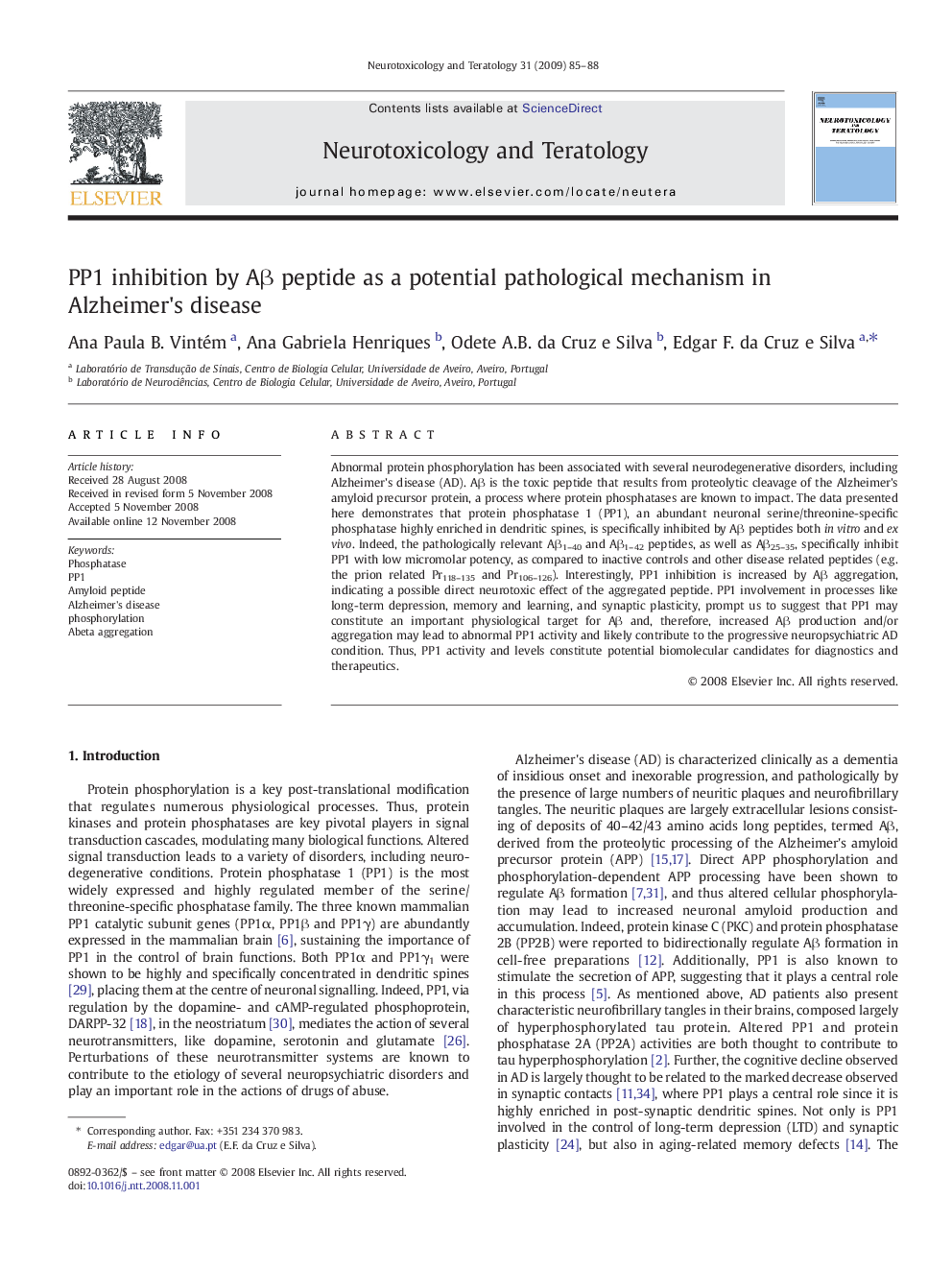| Article ID | Journal | Published Year | Pages | File Type |
|---|---|---|---|---|
| 2591661 | Neurotoxicology and Teratology | 2009 | 4 Pages |
Abnormal protein phosphorylation has been associated with several neurodegenerative disorders, including Alzheimer's disease (AD). Aβ is the toxic peptide that results from proteolytic cleavage of the Alzheimer's amyloid precursor protein, a process where protein phosphatases are known to impact. The data presented here demonstrates that protein phosphatase 1 (PP1), an abundant neuronal serine/threonine-specific phosphatase highly enriched in dendritic spines, is specifically inhibited by Aβ peptides both in vitro and ex vivo. Indeed, the pathologically relevant Aβ1–40 and Aβ1–42 peptides, as well as Aβ25–35, specifically inhibit PP1 with low micromolar potency, as compared to inactive controls and other disease related peptides (e.g. the prion related Pr118–135 and Pr106–126). Interestingly, PP1 inhibition is increased by Aβ aggregation, indicating a possible direct neurotoxic effect of the aggregated peptide. PP1 involvement in processes like long-term depression, memory and learning, and synaptic plasticity, prompt us to suggest that PP1 may constitute an important physiological target for Aβ and, therefore, increased Aβ production and/or aggregation may lead to abnormal PP1 activity and likely contribute to the progressive neuropsychiatric AD condition. Thus, PP1 activity and levels constitute potential biomolecular candidates for diagnostics and therapeutics.
